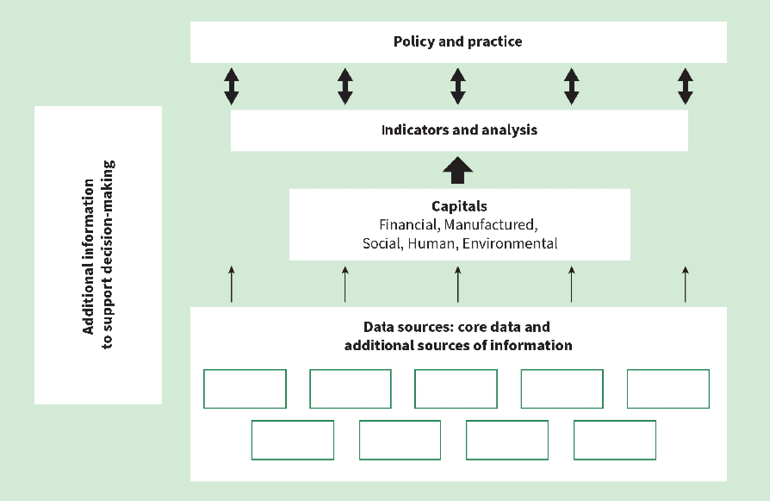Monitoring framework
The development of a world-class tourism data system requires a framework that connects data with policy and practice, and decision-makers’ needs in ways that cover all aspects of tourism.
The TDLG recommend the following holistic framework for monitoring New Zealand Tourism (noting that this is a simplistic depiction of it). The structure of the framework is adapted from work undertaken by United Nations Tourism on their Measuring the Sustainability of Tourism (MST) programme.
The framework covers a range of Capitals: Financial (e.g., expenditure), Manufactured (e.g., infrastructure), Human (e.g., skills), Social (e.g., communities), and Natural (e.g., environment). Adopting a holistic approach will be enduring (consistent with the TLDG’s long-term view), while enabling flexibility. The TDLG will be undertaking work throughout 2024 (as identified in the Regenerative Transformation Pou) to identify indicators and measures.
Rgenerative Transformation Pou
The proposed work across the four TDLG Pou (but in particular the Core Datasets Pou) will contribute to the development of the monitoring framework. Data/indicators will be able to be mapped across the five Capitals enabling monitoring of change, communicating the value of tourism, as well as identifying where impacts need to be managed. Some data (i.e., core data) should be routinely captured, while other data will reflect point-in-time priorities.

Text description of diagram

